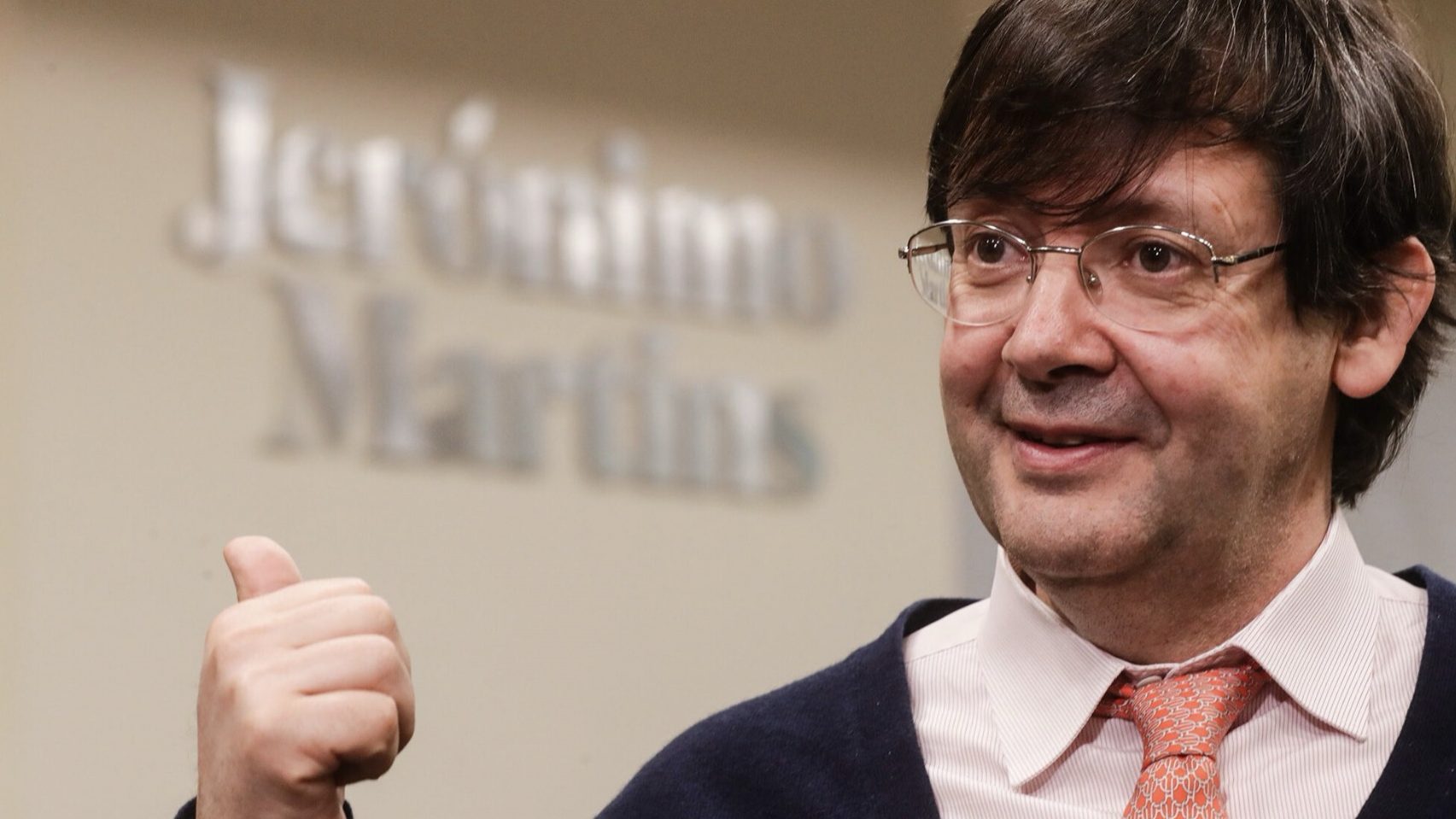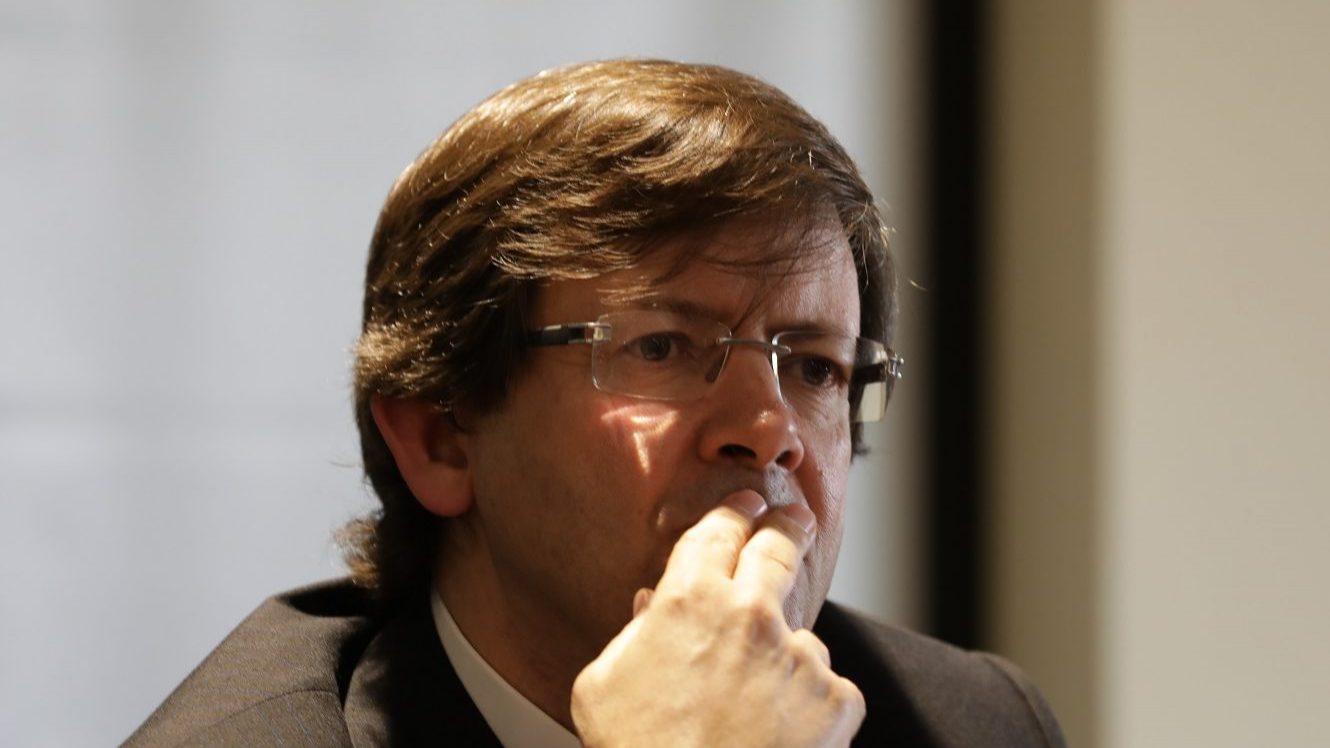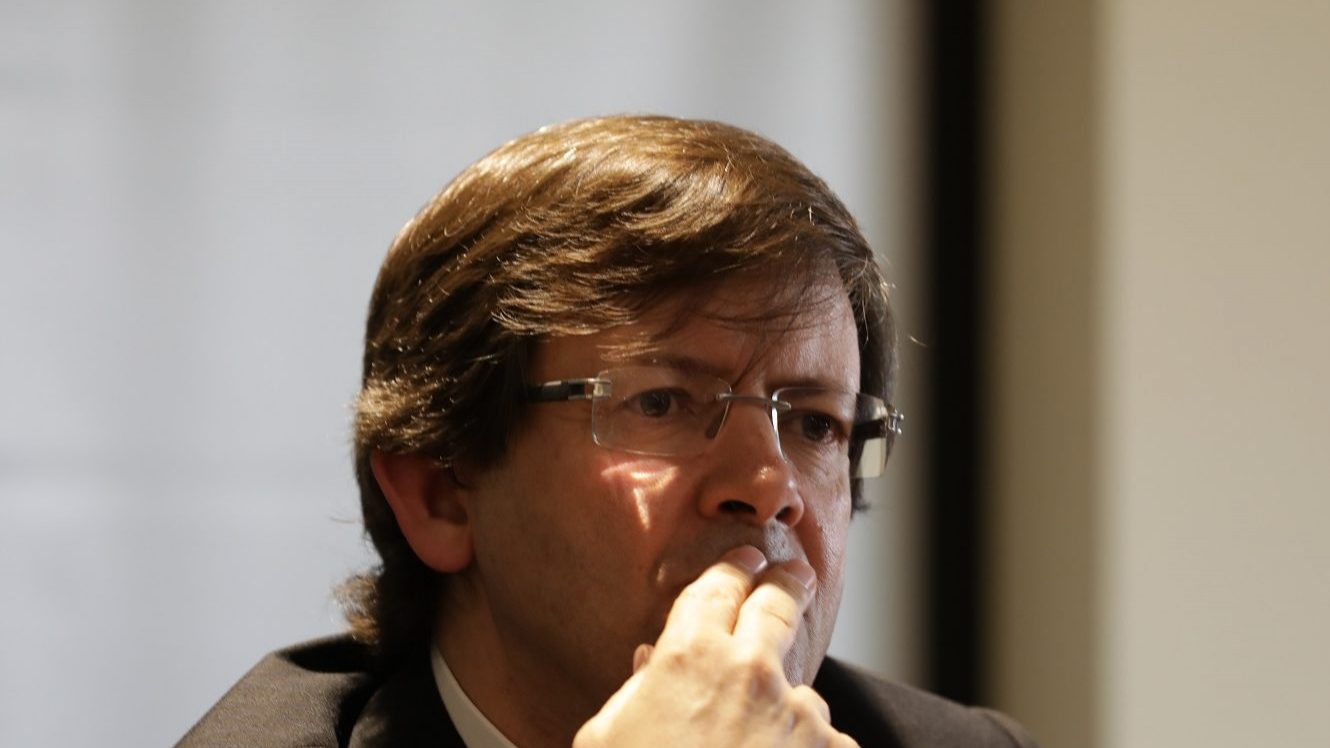Profits at Jerónimo Martins rise 6.6% in H1 to €269M
Jerónimo Martins maintains its outlook for this year and expects consumer behaviour to remain cautious and restrained, with intense competition continuing in the markets in which it operates.
Jerónimo Martins’ net profit grew 6.6% in the first half of the year, compared to the same period last year, to €269 million, announced this Friday the owner of the Pingo Doce, Biedronka and Ara brands.
Between January and June, sales rose 6.7% to €17.396 billion (+6% at constant exchange rates) and earnings before interest, taxes, depreciation and amortisation (EBITDA) grew 10.3% to €1.148 billion (+9% at constant exchange rates).
“Strong sales performance and operational efficiency more than offset the pressure of cost inflation on margins”, the group said in a statement sent to the Portuguese Securities Market Commission (CMVM).
The priority “given to the implementation of the investment programme led, in the first half of the year, to the opening of a total of 196 stores across the various brands and the refurbishment of 71 locations”, Jerónimo Martins said in a statement.
“At the end of June, the group’s balance sheet showed a net cash position (excluding IFRS16) of €213 million, after the payment in May of €371 million in dividends.” “Heightened uncertainty, driven by global geopolitical turbulence and political instability in the main European economies”, marked the period between January and June.
In an environment that remains volatile, “we expect consumer behaviour to continue to show caution and restraint, and the competitive dynamics of the markets in which we operate to stay intense. Nevertheless, the outlook for 2025 remains essentially in line with that presented on 19 March”, the group said.
In Poland, sales at the Biedronka supermarket chain, in local currency, rose 5%, with LFL [‘like-for-like’, i.e. sales in stores operating under the same conditions in the period under review] of 0.9%, and the chain strengthened its market share.
“In euros, sales reached €12.4 billion, up 7.1%” compared to the first half of 2024. In the second quarter, “with the positive contribution of Easter, which in 2024 fell in the first quarter, sales in local currency grew 9.7%, recording LFL of 5.3%,” the group said.
EBITDA increased by 9% (+6.9% in local currency) with the respective margin reaching 7.7%.
“Synergies between sales growth, tighter cost discipline and a focus on productivity drove this solid performance, and they remain at the heart of Biedronka’s strategy. We carried out store expansion and refurbishment programmes as planned, opened 81 stores during the period (72 net additions) and refurbished 34 locations”, it said.
Polish health and wellness chain Hebe saw its sales rise 7.3% (in local currency), with LFL standing at 1.3%. In euros, sales reached €297 million, 9.4% above the first half of 2024, and EBITDA decreased 7%. Hebe “opened nine stores in the Polish market and one in the Czech Republic, ending the period with a total of 382 stores in Poland, four in the Czech Republic and two in Slovakia”.
In Portugal, Pingo Doce “continued its commercial momentum, well recognised by consumers, and continued the conversion of stores to the All About Food concept, leading to sales growth of 5.7% with a strong LFL of 3.9% (excluding fuel)”. In the second quarter, “incorporating the positive calendar effect of Easter in the period, sales increased by 8.3% with an LFL of 6.5% (excluding fuel)”.
In the first half of the year, Pingo Doce opened three stores and completed 24 refurbishments. EBITDA stood at “€141 million, 6.1% above the same period last year, with the respective margin, in line with the previous year, reaching 5.5%, supported by good sales performance and initiatives to increase productivity that counteracted cost pressures”.
The wholesaler Recheio achieved sales of €657 million, 1.9% above the first half of the previous year, with an LFL of 1.6%. “The brand’s EBITDA was €32 million, 8.6% higher than in the same period last year, with a margin of 4.9% (4.6% in 1H 24), supported by a more favourable mix in the second quarter compared to the same period last year”, the company said.
In Colombia, the Ara supermarket chain “continued to deepen its promotional strategy, creating significant savings opportunities for Colombian families.”
The result “was a remarkable performance, with sales growing by 15.6% in local currency, including LFL of 5.3%.” In euros, sales reached €1.5 billion in the first half of the year,” up 7% on a year earlier.
Ara opened 96 new stores (93 net additions), 58 of which resulted from the integration of stores previously operated by Colsubsidio, closing the half-year with a total of 1,531 locations.
EBITDA was €60 million, up 50.5% year-on-year. “In addition to the good sales performance, the margin improvement continued to benefit from the work carried out in 2024 to protect the gross margin and control costs”, it said.
The half-year net financial costs amounted to €158 million, compared with €130 million in the first half of 2024, largely reflecting the execution of the expansion programme and the resulting impact on capitalised operating lease interest.
Other gains and losses “amounted to a net adjustment of €60 million, including, among others, write-offs, indemnities and provisions, as well as the allocation of €40 million from the 2024 results to the Jerónimo Martins Foundation”.
The Investment Programme reached a value of €546 million.
“Cash flow generated in the period, before the payment of dividends in May, recorded €157 million towards a negative balance”, Jerónimo Martins concludes.
Maintains outlook, expects prudent customers
Jerónimo Martins maintains its outlook for this year and expects consumer behaviour to remain cautious and restrained, with intense competition continuing in the markets in which it operates.
Jerónimo Martins’ net profit grew 6.6% in the first half of the year, compared to the same period last year, to €269 million, the owner of the Pingo Doce, Biedronka and Ara brands announced on Friday.
“Global geopolitical developments and political dynamics in major European economies shaped the first six months of 2025, creating a heightened focus on adaptability”, said the group led by Pedro Soares dos Santos in a statement.
In a volatile environment, “we expect consumer behaviour to remain cautious and restrained and the competitive dynamics of the markets in which we operate to remain intense”, it added.
Jerónimo Martins operates in Portugal, Poland, Colombia and Slovakia.
“The outlook for 2025 remains essentially in line with that presented on 19 March”, and “our brands will continue to ensure the price competitiveness necessary to sustain the preference of those who trust our value propositions and choose our stores, and to strengthen their respective market positions”, said the owner of Pingo Doce.
In Poland, “the 9.2% increase in the minimum wage is contributing to real growth in household disposable income. Meanwhile, the competitive environment remains intense in a food retail market that remains relatively subdued”, it points out.
Biedronka, which is celebrating its 30th anniversary, “will continue to lead the way in price competitiveness and design the best savings opportunities for Polish families” and “the priority will be sales performance”, which “in light of the above-market growth consistently delivered in recent years, presents a major opportunity”.
The Polish chain will remain focused on cost efficiency and the implementation of additional productivity measures “to protect profitability and respond proactively to the pressure resulting from the combination of low inflation in its basket and rising wage costs in the context of the low growth in food consumption that observers have noted”.
Jerónimo Martins points out that “the good results of the store formats used for expansion encourage the brand to continue strengthening its market presence with 130 to 150 store openings planned (net) by 2025”.
The refurbishment programme “should now cover around 200 locations” this year and the group also expects to “open a new distribution centre, which will join the 17 already in existence”.
The operation in Slovakia was marked by the opening, in the first half of the year, of “six Biedronka stores in the country and the start of operations at the first distribution centre”.
By the end of 2026, the group adds, “people expect the operation to have at least 50 stores in the country”.
In the case of the Polish health and wellness chain Hebe, it “is working on strengthening cost discipline as a way to manage the resulting pressure on margins”.
Hebe plans to open around 30 new locations this year, “keeping the e-commerce channel at the centre of its growth and internationalisation strategy”.
In Portugal, “the 6.1% increase in the minimum wage has contributed to higher consumption, and the focus on promotions remains the dominant behaviour in terms of food”, it said.
Pingo Doce, “which has benefited from the success of the All About Food store concept, will continue with its refurbishment programme, expected to cover around 50 stores” this year.
The group also plans to open around 10 new locations this year.
Recheio will move forward “with its store refurbishment programme, which continues to enhance the value proposition for the HoReCa [Hotels, Restaurants and Cafés] channel, while the Amanhecer partnership network, which already has more than 700 locations, will continue to expand”.




